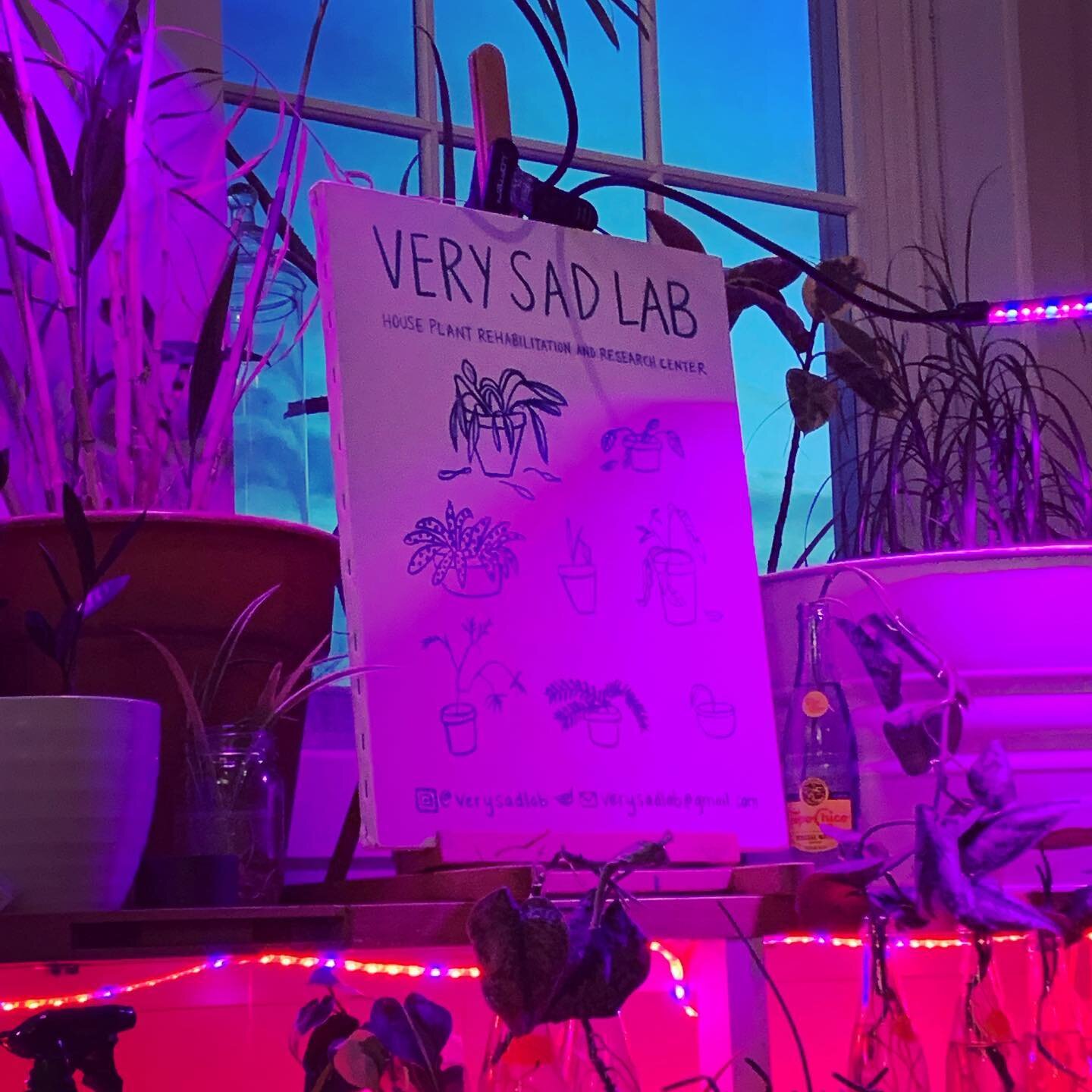“Very Sad Lab: The Incubator” Explores the Human + Plant Connection

In the urban environment we inhabit, indoor plants provide a lush relief to our cement surroundings. To showcase our ever-evolving relationship with nature, collective Very Sad Lab is back with a new installation at Transformer Gallery — and this interactive horticultural experience is a relatable one.
“Very Sad Lab: The Incubator,” equips current and future plant owners with essential education to take care of their plants, especially when our verdant friends find themselves in a bit of a slump.
In this exhibit, Naoko Wowsugi and Valerie Wiseman of Very Sad Lab have organized a six-week crash course on practical ecology, plant rehabilitation and resources to help keep indoor plants content in their space. The collective chose the name Very Sad Lab as a sprightly, cynical take on plant owners’ propensity to, well, kill their plants. The nomenclature fits perfectly with their cause: Everyone has a story about plant ownership and there is a communal defeat and sadness experienced when our plants call it quits.
“The Incubator” is a constructed indoor plant bed where propagations of pathos and monstera rest beneath a hue of pink light. The structure includes a multimedia feature above the bed, where a capricious ’90s-era instructional video plays on loop. The surround sound is a specially curated playlist featuring everything from jazz and soul to modern beats, providing a bit duly needed emotional auditory support for the plants.
Speaking on the decision to center a large structure as the focal point of the installation, Wowsugi says, “We wanted to make this big bed so [plant owners] can learn how to re-pot and work with resources through tutorials to see the plants grow.”
Throughout the exhibit, there is consistent emphasis toward the healing cycle that exists between humans and plants.
“Taking care of [the plants] is a relationship, and connecting with them is something we connect with other people about,” Wiseman says. “With this exhibition, we’re trying to lay the groundwork to prepare everyone to take care of plants, but also remember we can’t ignore [nature]. Everything’s connected — we’re affecting nature and nature is affecting us.”
Beyond the whimsical personification of the plants “The Incubator” hopes to regenerate, Wiseman adds, “Plants are important because they’re not just for decorating and they shouldn’t be thought of as a decoration. Ultimately, plants clear the air we breathe and draw attention to the circular relationship humans have with nature.”
The interactivity of “Very Sad Lab: The Incubator” ultimately conveys a growing trend toward social engagement in art. Having opened this past weekend, future programming of “The Incubator” will include a seminar on propagation and germination and a “baby shower” and plant adoption day. As we approach the tail-end of winter, this regenerative exhibit underscores intentionality, physical regrowth and a tinge of lighthearted cynicism to develop a newfound relationship with our indoor plants.

